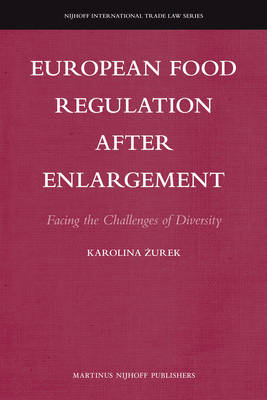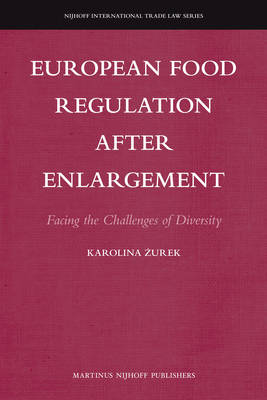
- Afhalen na 1 uur in een winkel met voorraad
- Gratis thuislevering in België vanaf € 30
- Ruim aanbod met 7 miljoen producten
- Afhalen na 1 uur in een winkel met voorraad
- Gratis thuislevering in België vanaf € 30
- Ruim aanbod met 7 miljoen producten
Zoeken
€ 270,45
+ 540 punten
Omschrijving
This book presents a critical legal perspective on the current direction of EU food regulation. Analysing three regulatory mechanisms - mutual recognition, scientific risk regulation and standardisation - in the evolution of food legislation in the EU, the book shows the inadequacy of the current framework in facing the challenges of enlargement. Using the particular experience of a new member state, Poland, the book argues that an enlarged Europe must not disregard diverse socio-economic implications of market regulation. Due to historical legacies and a bias in favour of homogeneity, the EU food regulatory regime has generated a one-dimensional crisis-oriented approach. As a result, it tends to overlook other legitimate concerns such as quality, diversity and local traditions. This book argues that this need not be so.
Specificaties
Betrokkenen
- Auteur(s):
- Uitgeverij:
Inhoud
- Aantal bladzijden:
- 288
- Taal:
- Engels
- Reeks:
- Reeksnummer:
- nr. 9
Eigenschappen
- Productcode (EAN):
- 9789004195844
- Verschijningsdatum:
- 11/11/2011
- Uitvoering:
- Hardcover
- Formaat:
- Genaaid
- Afmetingen:
- 160 mm x 240 mm
- Gewicht:
- 639 g

Alleen bij Standaard Boekhandel
+ 540 punten op je klantenkaart van Standaard Boekhandel
Beoordelingen
We publiceren alleen reviews die voldoen aan de voorwaarden voor reviews. Bekijk onze voorwaarden voor reviews.








